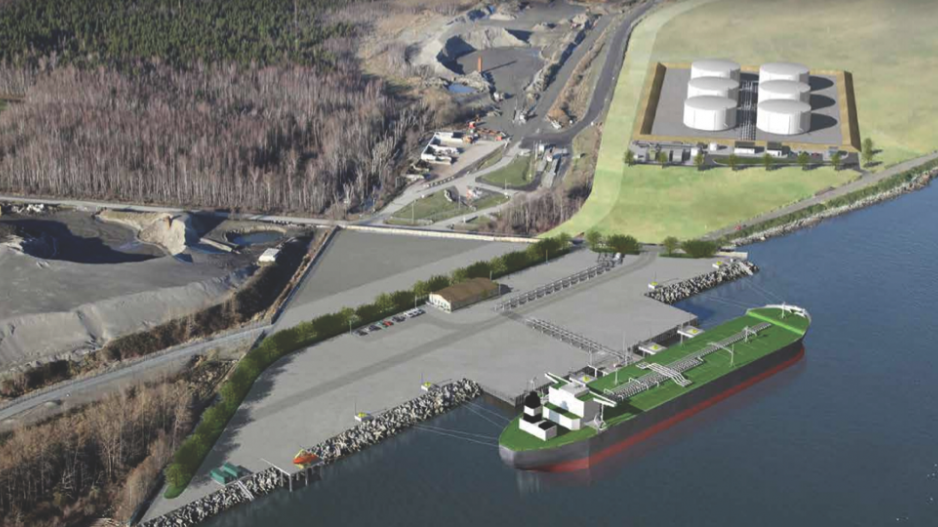While debate rages over the Kinder Morgan Canada (TSX:KML) Trans Mountain pipeline expansion, another pipeline that has also generated controversy – one that could actually cut into Kinder Morgan’s business – is now under construction.
Last month, site preparation began in Richmond for a new tank farm that is part of a $150 million jet fuel terminal and pipeline that will supply airlines operating out of Vancouver International Airport (YVR) with jet fuel.
Once built, it could make obsolete the 48-year-old Kinder Morgan pipeline that currently supplies most of the airport’s fuel.
Numerous regulatory delays and opposition from the City of Richmond put the project several years behind schedule and more than doubled its original estimated capital cost, from $70 million to $150 million.
The project was at first slated to be finished in 2012. It is now expected to be completed in 2019 – provided there are no more delays in getting some of the outstanding permits that are still needed.
“The environmental assessment process did take quite a lot longer than we anticipated,” said Adrian Pollard, spokesman for the Vancouver Airport Fuel Facilities Corp. (VAFFC), the consortium of 25 airlines that is financing the project. “So we suffered some delays just due to regulatory requirements.”
The project involves building a new marine terminal on the south arm of the Fraser River, a tank farm and a 15-kilometre pipeline that will run through Richmond along Highway 99 and stretch west to Lulu Island.
The new terminal will be able to receive Panamax vessels, which will allow the consortium to source jet fuel from Asia.
Airlines operating at YVR get most of their jet fuel from a 48-year-old pipeline owned by Kinder Morgan, but only about 40% of the jet fuel moving through that pipeline comes from the former Chevron refinery, which is now owned by Parkland Fuel Corp. (TSX:PKI). The rest comes by barge from the Cherry Point Refinery in Washington state, and by tanker truck.
Because the Kinder Morgan airport pipeline is maxed out, it sometimes means up to 45 tanker trucks per day must augment the airport’s supply of jet fuel during peak periods, Pollard said.
The problem will only get worse as air traffic at YVR continues to grow.
“This project is being justified again and again, year after year, with the growth and statistics coming out of the airport,” Pollard said.
In the 10 years since the jet fuel pipeline project was first proposed, passenger numbers at YVR have grown by nearly 30%, and total passenger numbers are expected to grow to 35 million by 2037 from 22.3 million in 2015.
The airlines that belong to the consortium now rely on two refineries for all of their fuel. YVR has six to eight days of fuel storage capacity. The new tank farm will add a few more days.
The big concern for airlines is that if either or both refineries ever halted production for an extended time, they would have only about a week of fuel stored.
Once the VAFFC project is completed, the consortium will be able to buy jet fuel on the open market. South Korea is one likely supplier, said Rob Smith, energy director for IHS Markit.
He expects having access to new markets for jet fuel will drive prices down, which will affect both the refinery in Burnaby and Kinder Morgan.
The new pipeline might mean that the days are numbered for the Kinder Morgan pipeline that now supplies YVR, because airlines will be able to supply all of their own fuel.
It’s not clear what Kinder Morgan’s plans are for its jet fuel pipeline. The company did not return calls by press time.
“The airlines are the end customer,” Pollard said. “They’re financing this project; naturally they’re going to use it. And the capacity on that existing line will decline to such a point where it’s not really economical to maintain it.”




